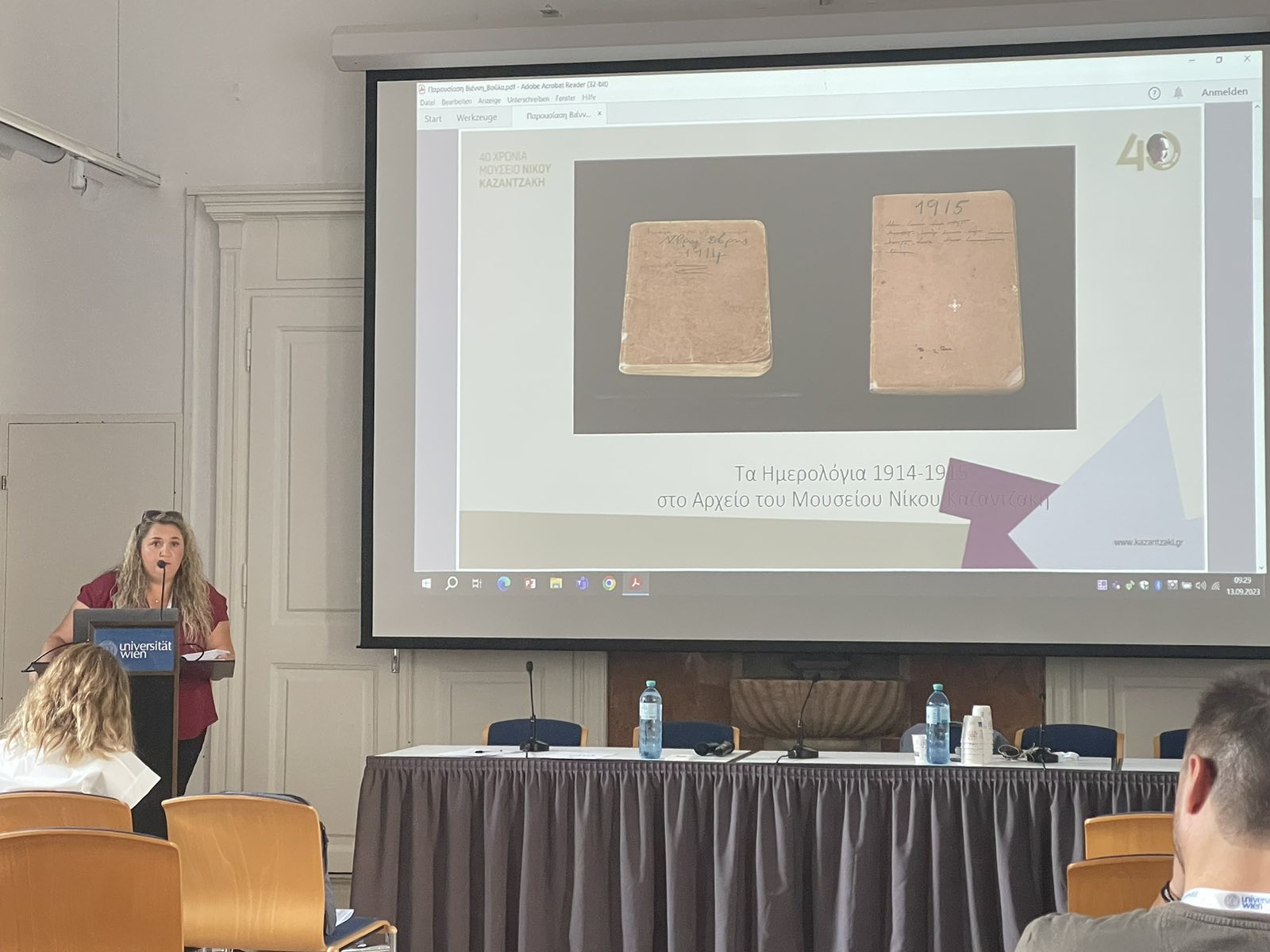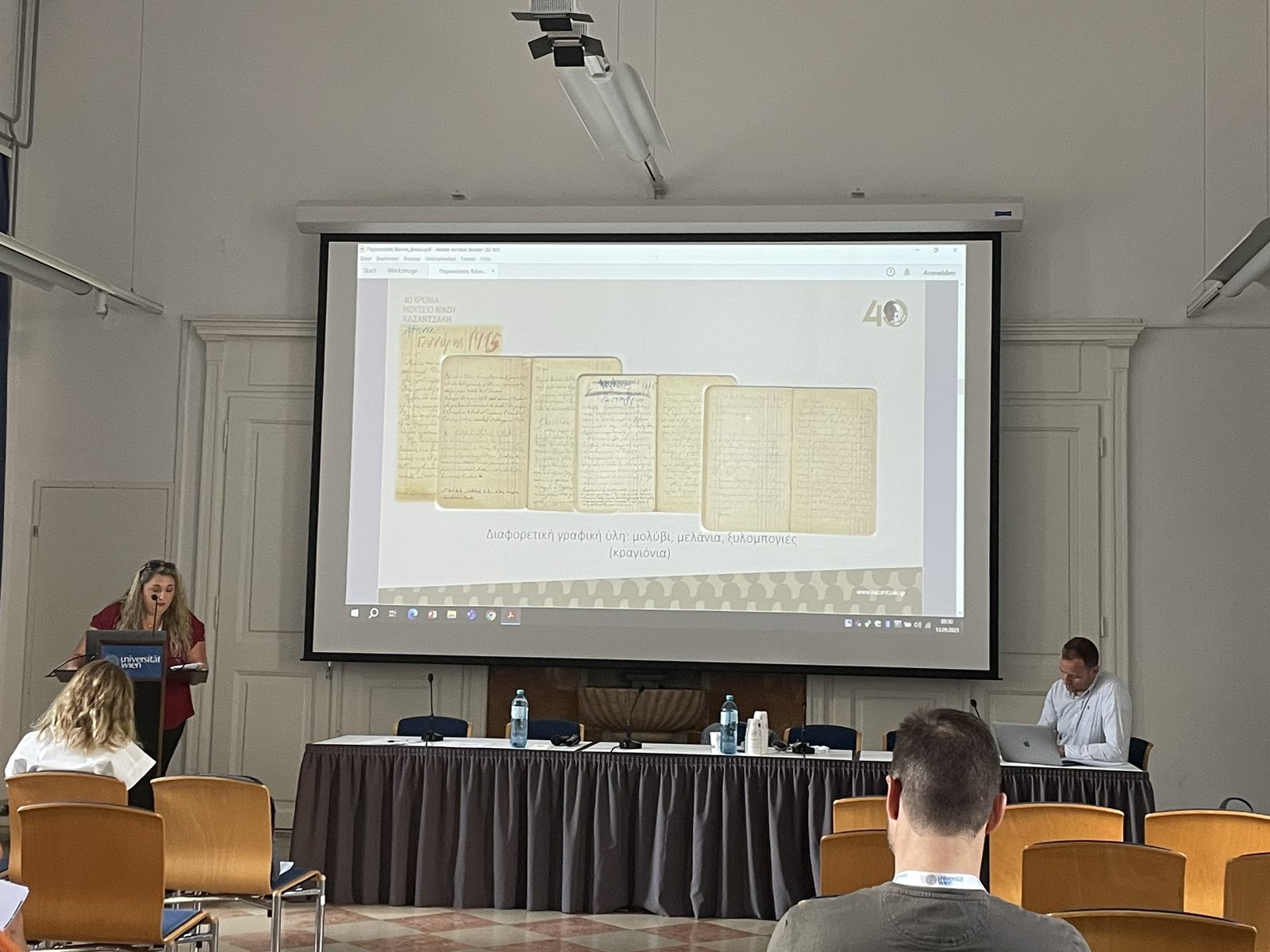The European Society for Modern Greek Studies, since its foundation in 1995, organizes every four years an international conference on Modern Greek studies, in which Modern Hellenists from all over the world announce the results of their research according to the theme of the conference.
It is a conference-institution now attended by both experienced academics and young researchers, often before or after completing their PhD from the widest range of scientific fields and specialties related to Modern Greek Studies (history, literature, philology, linguistics and language teaching, theater and film studies, anthropology, archaeology, art history, international relations, comparative literature, musicology, political science, cultural studies).
On September 11-14, the 7th European Congress of Modern Greek Studies was held in collaboration with the Department of Byzantine and Modern Greek Studies of the University of Vienna and the Austrian Society for Modern Greek Studies at the University of Vienna with the title: "Zoom in and focus on Modern Greek Hellenism: Texts, images, objects, histories" in which approximately 300 presenters from 25 countries participated.
Among the topics of the Conference, the interest in Kazantzakis was lively again, since a total of 7 announcements were made about the author on various topics.

The Nikos Kazantzakis Museum was represented by Ms. Paraskevi Vassiliadis, Curator of its Collections, who presented an important item of the Museum. This is the Diary of 1915, which she is studying as part of her dissertation at the University of Athens, the study of which shows, as she said in her presentation, that we still have a lot to discover in the Kazantzakis universe and that from the study of such a "humble" of presumption, a notebook of a few centimeters, important new data for Kazantzakis studies can be obtained. The presentation generated interest in addition to its special subject and for the Museum itself, but also caused an impression that important unknown issues still arise with the careful study of the Archive, while it was emphasized that the founder of the Museum George Anemoyiannis, who also himself had transcribed the Diary, he did something very important and partly the impossible, from a private collection, he created a huge Nikos Kazantzakis Archive open to researchers.


